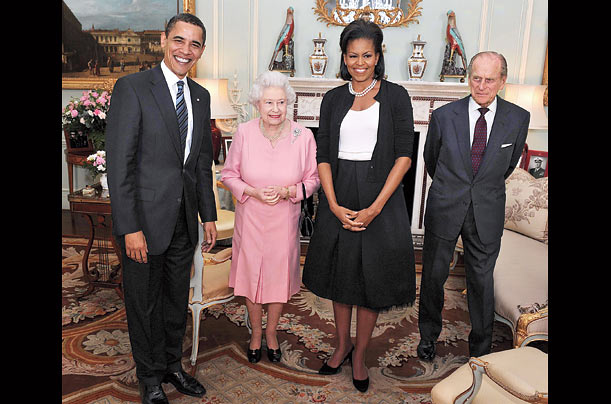
The last time Barack Obama was in Europe, he gave a speech to an adoring crowd of 200,000 in Berlin's Tiergarten, and John McCain dubbed him the "biggest celebrity in the world." Obama still has his fans in Europe and still knows how to charm them. In London for the G-20 meeting of leading economic powers, he met the Queen and had the British press — for whom celebrity is as appealing as garlic to a vampire — eating out of his hand. (Some of the hacks surreptitiously took pictures with their cell phones as he spoke.)
But when you're President of a nation whose unregulated, red-in-tooth-and-claw capitalism is widely blamed for an economic crisis that is making life miserable for millions, star wattage will get you only so far. In the run-up to the G-20, continental European powers such as France and Germany made it clear that they viewed with distaste the principal U.S. prescription for recovery: a massive fiscal stimulus to boost demand. Similarly, at the NATO summit to follow the G-20 meeting, Obama could expect to be met with warm words but few pledges of the troops he would like to augment U.S. forces in Afghanistan. This is how the world now is. Obama, for his part, seems to recognize that economic power has been dispersed and that his audiences are in no mood to be told how to behave by any American President, however popular on a personal level he may be. In London, Obama said he had come "to listen, not to lecture." More startling, he told his audience that the U.S. was at the G-20 "as a peer" of other nations.
It wasn't really, of course. The U.S. is too big, too rich, too well-armed to be anyone's equal. But being big and rich and well-armed does not make you a leader. Followers make you that, and the loyalty of followers has to be earned by more than a great speech and an inspiring life story. If Obama did not know it before (though one suspects he always did), he surely knows it now: it was easy being a celebrity; it's tough being a President.